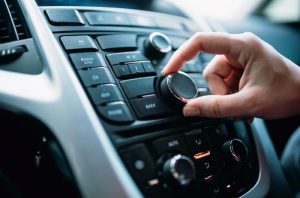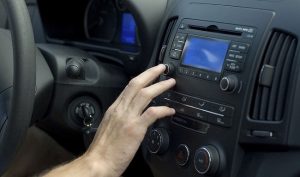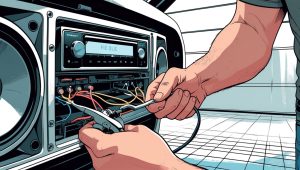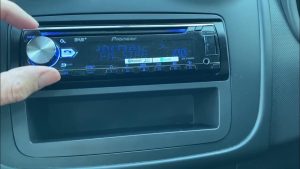In today’s world, where energy conservation and environmental sustainability are of utmost importance, many people are curious about the energy consumption of various devices. One common question that often arises is, “Does radio use gas?” To provide a direct answer: No, car radios do not use gas. Car radios are powered by the electrical system of the vehicle, which includes the battery and alternator. When you turn on the radio, it utilizes the electrical energy provided by the car’s battery to power the speakers and produce sound. Unlike the engine, the radio does not rely on gasoline to function.
In this blog article, we will delve into this topic and debunk the myth surrounding the energy usage of radios. Read on to discover the truth and learn more about how radios operate.
Contents
Understanding How Car Radios Work
Car radios have become an integral part of our driving experience, providing entertainment and information during our journeys. But how do they actually work? Understanding the inner workings of a car radio can help dispel the misconception that they consume gas.
Car radios are designed to be powered by the electrical system of the vehicle. This system consists of the battery and alternator, which work together to provide electrical energy to various components in the car. When you turn on the car radio, it taps into this electrical energy to function.
The radio unit itself is equipped with a built-in amplifier that receives signals from the antenna. These signals, which can be AM (Amplitude Modulation) or FM (Frequency Modulation) radio waves, are then converted into electrical audio signals. These audio signals are then sent to the speakers, where they are converted back into sound that we can hear.
It’s important to note that the electrical energy required to power the car radio is relatively minimal compared to other electrical components in the vehicle. Components such as the air conditioning system, headlights, and power windows draw more power from the electrical system. Therefore, the impact of the car radio on fuel consumption is negligible.
In summary, car radios operate by utilizing the electrical energy provided by the vehicle’s battery and alternator. They do not use gas as their source of power, and the energy required for their operation is relatively low compared to other electrical components in the vehicle.
Powering Radios
- Electricity: Radios are powered by electricity, which can be sourced from various means. Most portable radios use batteries, either disposable or rechargeable, to operate. These batteries convert chemical energy into electrical energy, which powers the internal components of the radio.
- Alternator (Car Radios): Car radios, on the other hand, are typically powered by the vehicle’s alternator. The alternator converts mechanical energy from the engine into electrical energy, which is used to power the car’s electrical systems, including the radio.
Maximizing Energy Efficiency: Tips for Optimal Car Radio Usage
While car radios themselves do not consume a significant amount of fuel, it’s still beneficial to optimize their usage for maximum energy efficiency. Here are some tips to help you make the most out of your car radio without compromising fuel consumption:
- Moderate Volume Levels: Playing your car radio at excessively high volume levels can strain the audio system, requiring more power from the electrical system. Keeping the volume at a moderate level not only preserves the health of your audio components but also reduces the overall power consumption.
- Limit Idle Time: If you frequently enjoy listening to the radio while parked or waiting in the car, it’s advisable to limit the idle time. Running the engine solely for the purpose of listening to the radio can waste fuel. Instead, consider turning off the engine and utilizing the battery’s power for a short period.
- Utilize Battery-Saving Modes: Many modern car radios offer power-saving modes or energy-efficient settings. These modes typically adjust the display brightness, reduce power to non-essential features, or implement automatic shut-off after a period of inactivity. Enable these settings to minimize power consumption.
- Opt for Radio Over Other Power-Intensive Accessories: If you’re concerned about fuel efficiency, choosing to listen to the radio instead of running power-intensive accessories like air conditioning or heated seats can help conserve energy. Prioritize comfort and convenience features based on your preferences and driving conditions.
- Regular Maintenance of Electrical System: To ensure optimal performance and minimize energy waste, it’s essential to maintain your vehicle’s electrical system. Regularly check and clean battery terminals, inspect wiring for any signs of damage and keep the alternator in good working condition through routine maintenance.
Conclusion
To conclude, Does radio use gas? Radios do not use gas as a source of power. They rely on electricity, either from batteries or a car’s alternator, to operate. While radios consume energy, they are generally considered to be energy-efficient devices. By following simple energy conservation practices, such as using rechargeable batteries and turning off the radio when not in use, you can further reduce your energy consumption. So, enjoy listening to your favorite tunes on the radio without worrying about gas usage.






